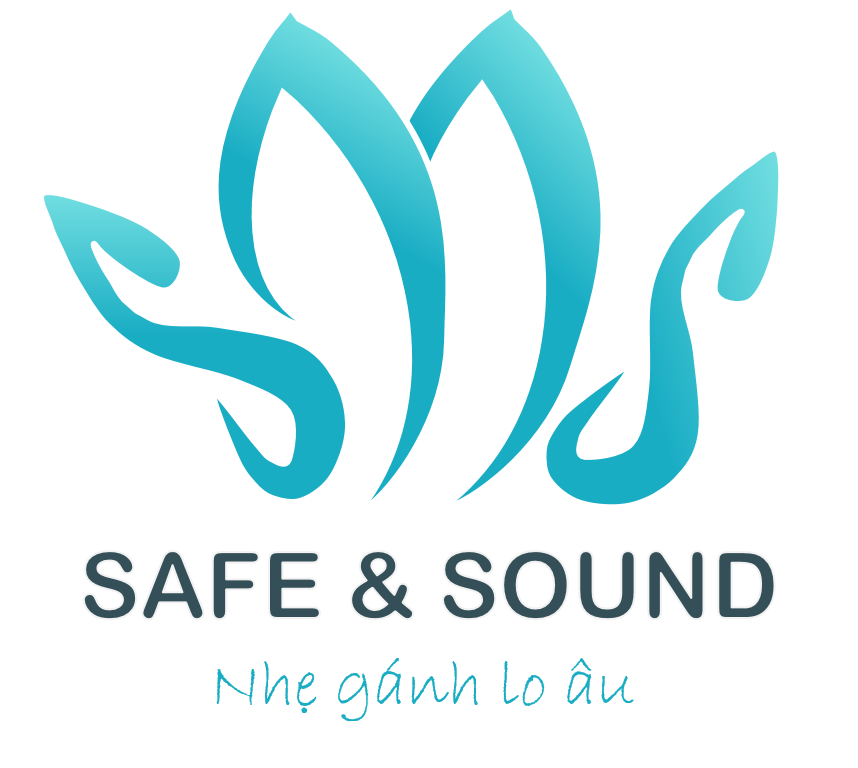Feeling Exhausted and Discouraged: A Sign of Stress or Depression? | Safe and Sound
Many people think that feeling tired and depressed is just a temporary consequence of overwork or lack of sleep. However, when these negative emotions last for a long time and seriously affect the quality of life, they can be a warning sign of deeper psychological problems, especially stress or depression. So how can we distinguish between these two states? When should we seek help from a psychologist?
Ngo Thi Sang | Master of Educational Psychology – Applied mental health care Safe and Sound
Institute of Medical Technology Applications
1. Understand correctly the feeling of boredom and fatigue

Correct understanding of the feeling of boredom and fatigue
“Depression” and “fatigue” often go hand in hand, making the person experiencing it feel both physically and mentally exhausted. Psychologists say that a person who is depressed and tired may feel:
- Loss of motivation to work or study
- Difficulty concentrating, forgetfulness
- No interest in things that used to make you happy
- Persistent fatigue despite rest
- Irritability or sadness for no reason
If these states only occur for a short time, after a period of psychological stress, then you may just be stressed. But if the feeling of tiredness and depression appears continuously, lasts for more than two weeks and affects work, study, relationships... then this may be a warning sign of depression.
2. Similarities and differences between stress and depression
In modern life, it is not difficult to find people who often complain that they are “too tired”, “tense as a string” or “don’t want to do anything anymore”. According to psychologists, these manifestations can stem from stress, but can also be the origin or symptoms of depression. To clearly distinguish these two concepts, we need to understand more deeply the nature of each state and how they affect human emotions and psychology.
1. What is stress?

What is stress?
Stress is the body's physiological and psychological response to pressure, demands or sudden changes from the living environment: it can come from work, study, finances, relationships or even from personal expectations. It is like an "alarm" mechanism that helps people adapt, prepare for action and react to risks or challenges.
For example, you may feel stressed when you have an important exam coming up, when your boss scolds you for missing a deadline, or when you face long-standing conflicts at home.
Mild stress can be beneficial, helping you focus, work more efficiently, and complete tasks on time. However, if stress persists for days or weeks without being dealt with or relieved, it begins to cause damage to both your physical and mental health.
Typical signs of stress include:
- Persistent headache, feeling of fatigue throughout the body: Muscles may be tense, especially in the neck and shoulders, back pain or dull headache.
- Sleep disorders: Difficulty falling asleep, staying asleep, or waking up frequently during the night. Feeling restless despite getting enough sleep.
- Changes in eating: Some people overeat to relieve stress (emotional eating), while others experience complete loss of appetite.
- Strong emotional reactions: Irritability, hot temper, crying for no reason, losing temper in normal situations.
- Feeling constantly restless and anxious: Unable to truly relax or rest because the mind is constantly spinning with a series of worries.
- Cardiovascular and digestive symptoms: Rapid heartbeat, chest pain, stomach pain, diarrhea or constipation that lasts for a long time are also signs of chronic stress.
If you feel stressed on a regular basis and have no way to “cool down” your mood, it becomes a big risk factor for more serious psychological problems, including depression.
2. What is depression?

What is depression?
Depression is not a temporary state of emotion but a clinical psychological disorder that strongly affects the way you feel about yourself, the world around you and your ability to cope with everyday life.
Depression is more than just feeling sad – it's a feeling of emptiness, hopelessness, and loss of energy that can last for weeks, months, or even years if left untreated.
What is particularly dangerous is that depression can start very quietly. At first, you just feel a little tired, lose motivation, and do not want to communicate. But gradually, you begin to feel meaningless, lose the ability to feel joy, and worse, you think that life has nothing to hope for.
Common symptoms of depression include:
- Feelings of deep and lasting sadness: For no apparent reason, you always feel mentally bad, possibly accompanied by crying, loss of faith in yourself and life.
- Loss of interest in things: Things that used to make you happy like music, books, sports, friends… now no longer bring you any feeling.
- Severe sleep disturbances: Some people with depression have trouble sleeping at night, while others sleep a lot but still feel exhausted.
- Major changes in appetite and weight: You may lose weight rapidly due to loss of appetite, or gain weight due to uncontrolled eating.
- Feelings of uselessness, guilt, and inferiority: You feel like a burden, a failure, and unworthy of love.
- Loss of concentration, slow thinking: Things become difficult, even the simplest tasks feel overwhelming.
- Having thoughts of death or suicide: This is the most serious symptom, requiring medical intervention and urgent support from a psychologist or psychiatrist.
3. How to tell if you are stressed or depressed
Psychologists say that it is sometimes difficult to differentiate between stress and depression, as they have many similar symptoms such as: boredom, fatigue, mood swings, and difficulty concentrating. However, there are some points that can help you identify:
|
Symptom |
Stress |
Depression |
|
Time extension |
Usually short term |
Lasts at least 2 weeks or more |
|
Reason |
Usually obvious (work pressure, conflicts…) |
The cause may be unknown. |
|
Primary emotions |
Anxiety, stress |
Sad, empty, hopeless |
|
Operational Capability |
It may still work fine if you try |
Having difficulty in daily activities |
|
Desire to live |
Not much affected |
May have thoughts of death or suicide |

Safe and Sound Clinic - Family health and psychological support
With a team of experienced doctors and specialists, Safe and Sound Clinic is a pioneer in comprehensive health care with health care services from medicine to psychology.
“Early prevention - Timely support - Long-term companionship”.
If you have any doubts or experience any physical or mental health problems, please contact HOTLINE 0964 778 911 (Phone/Zalo, 24/7) for answers and support as soon as possible!
HOW TO MAKE AN APPOINTMENT for online or in-person consultation with an expert
- At SnS Clinic - IMT Institute
- Or download and schedule a consultation on the Safe and Sound app to manage and track your schedule anytime, anywhere.
Safe and Sound (SnS) - Institute of Applied Medical Technology (IMT)
See also:
Is prolonged fatigue dangerous? When should I see a psychologist?
Signs and treatment of anxiety disorders with the support of a psychologist
What is depression? Symptoms of depression, can depression be cured?




